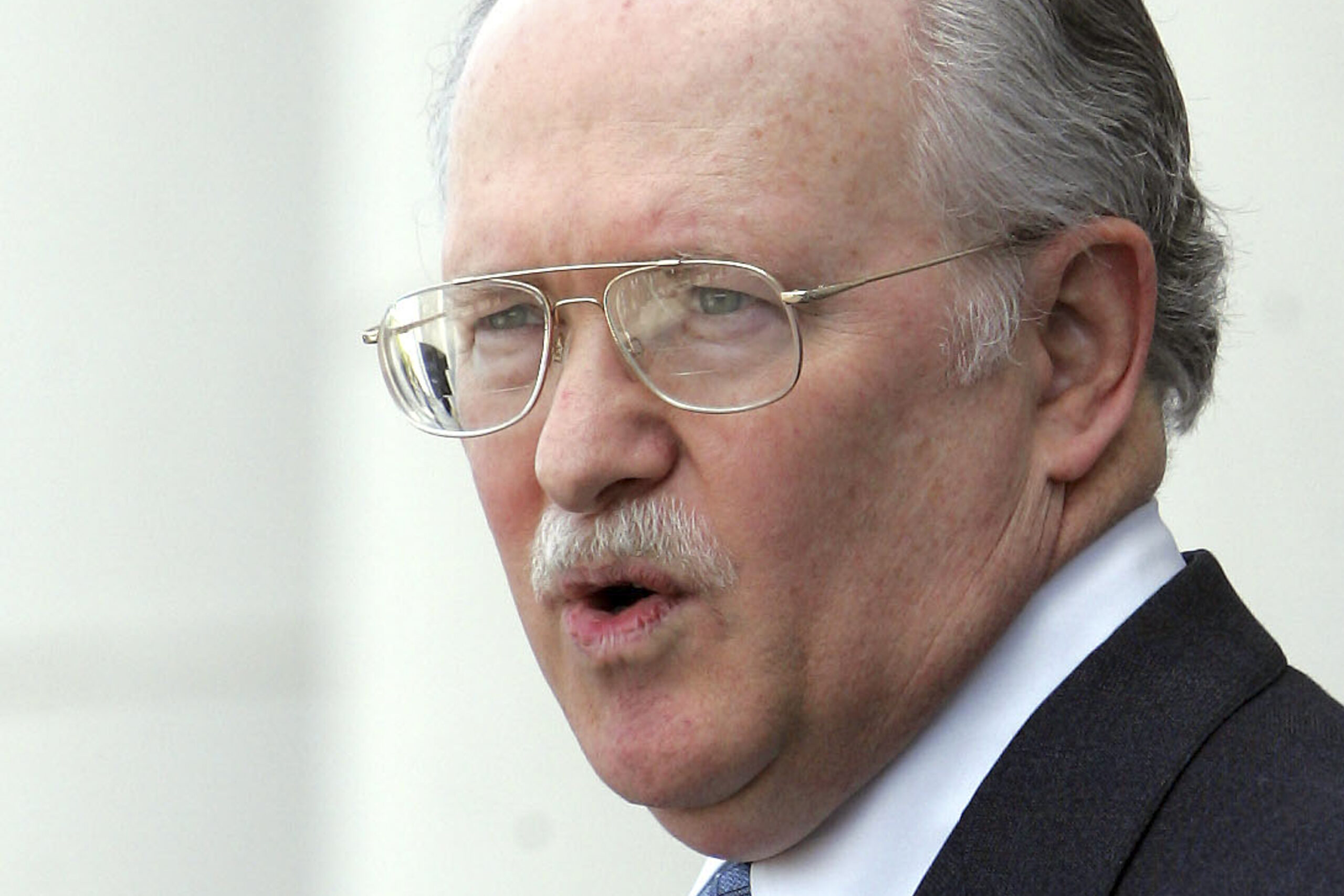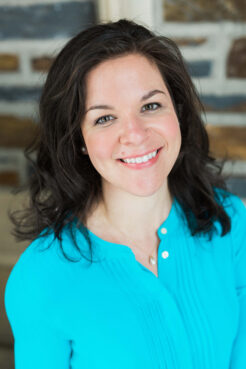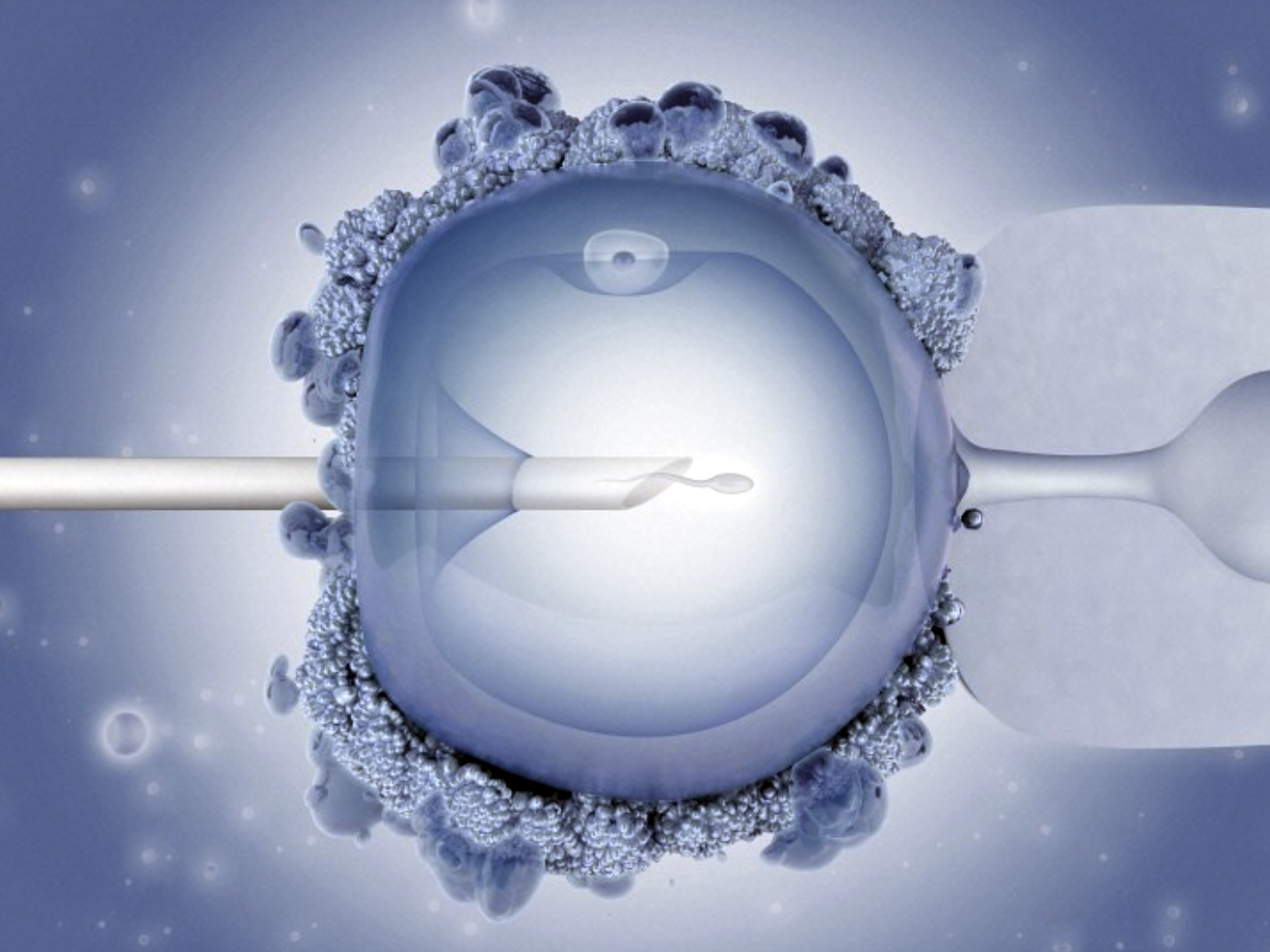(RNS) — When Alabama Supreme Court Chief Justice Tom Parker issued his concurring opinion earlier this month in the court’s controversial ruling declaring frozen embryos children, he did so with an unapologetically religious flair.
The Feb. 16 ruling — which has resulted in all but halting in vitro fertilization procedures, which can use frozen embryos to help people become pregnant, in the state — drew on anti-abortion language in the Alabama Constitution to conclude embryos created during IVF have the same rights as children.
Parker, amid references to theologians and the Bible, concluded that by declaring frozen embryos children, Alabama was modeling a “theologically based view of the sanctity of life” that insists “human life cannot be wrongfully destroyed without incurring the wrath of a holy God.”
Parker may have presented his policy position as rooted in an authoritative Christian view, but he may be in the minority when it comes to his fellow religious Americans — including Christians.

Alabama Supreme Court Justice Tom Parker speaks on the steps of the state judicial building on April 5, 2006, in Montgomery, Ala. When the court ruled this month that frozen embryos are children, Parker, now the chief justice, made explicit use of Christian theology to justify the court’s decision in his concurrence, where his language echoed the broader anti-abortion movement. (AP Photo/Jamie Martin, File)
While personal views on IVF are harder to assess, there seems to be broad familiarity with the practice among religious groups. When Pew Research asked adult respondents last year whether they have used fertility treatments to have children or know anyone who has, white Catholics were the mostly likely to say yes (55%), followed by white mainline Protestants (48%), white evangelicals (44%) — all higher percentages than those who identified as atheist or claimed no particular religion (40%).
Hispanic Catholics (29%) and Black Protestants (26%) were the least likely to say they used fertility treatments or know someone who has, although Pew researchers told Religion News Service that finding “appears to be driven more by differences across race and ethnicity than religion.” In addition, the researchers elsewhere noted that wealthier people are more likely to say they’ve used fertility treatments or know someone who has, an “unsurprising” finding given the high cost of IVF, which can range from $15,000 to $20,000.
Some of the outspoken opinions on IVF fall along predictable lines, mirroring that of the abortion debate: Religious advocates for abortion rights support IVF, the Catholic leadership opposes it. But IVF is arguably a narrower issue: Even among religious groups that seek to ban abortion, many do not agree that the destruction of frozen embryos is the same as taking a life. Some mainline denominations do not even have an official position on IVF, such as the Evangelical Lutheran Church in America.
Other groups have openly praised the practice, particularly more liberal-leaning mainline denominations. The Episcopal Church has endorsed IVF since 1982, and the United Church of Christ passed a resolution at its 1989 General Assembly that referenced IVF before declaring that the denomination “supports the rights of families to make decisions regarding their use of the reproductive technologies.”
“A lot has changed in the field of reproductive technologies since 1989, but our values have been consistent in this regard,” the Rev. Shari Prestemon, the UCC’s current acting associate general minister, told RNS in a statement. “We support the rights of individuals and families to make these very private decisions for themselves, and urge care and compassion for these families along what can often be such a painful and challenging journey.”
Even denominations that have expressed ambivalence about abortion have nonetheless voiced openness to IVF. Although the United Methodist Church has issued statements saying it is “reluctant to approve abortion” and declared in 2016 that people “should not create embryos with the sole intention of destroying them,” it grants an exception for IVF. A denominational resolution stated that “obtaining and fertilizing multiple ova may be justified” even if embryos are lost, because it helps “avoid the necessity of multiple attempts to obtain ova.”
Religious advocates for abortion rights were among the first to voice outrage over the Alabama court’s ruling, arguing that it furthers a disputed theological claim about when life begins — one not shared by all religious Americans.

The Rev. Katey Zeh. (Courtesy photo)
“I don’t think anyone could make a biblical claim about this because the technology of IVF is very modern,” said the Rev. Katey Zeh, the head of the Religious Coalition for Reproductive Choice, a group that advocates for abortion rights.
“There’s a huge spectrum of theological opinion about when life begins or when personhood begins,” she told RNS in an interview. “There’s no consensus here, so there’s a lot of hubris in claiming — especially in the legal standing — that this is the theological viewpoint of an entire religious tradition. That’s certainly not true.”
Zeh argued opposition to IVF is often fueled by broader faith-based campaigns against abortion, with some religious leaders and activists insisting the destruction of unused frozen embryos is tantamount to an abortion. Some religious institutions, such as the Catholic Church, have enveloped opposition to IVF into their larger anti-abortion stance: A 1998 document promoted by the U.S. Conference of Catholic Bishops deemed the discarding of unused embryos in IVF is “a terrible offense against human life,” arguing that while a baby may still be born, “other lives are usually snuffed out in the process.”
Meanwhile, Southern Baptists such as Andrew T. Walker, a professor at The Southern Baptist Theological Seminary, have called on the denomination to adopt an official resolution addressing IVF at its next convention later this year.
“When you consider the moral goods that Scripture holds as inseverable for where conception ought to occur, IVF is ruled out,” Walker posted on X earlier this month.
But there is even some evidence that evangelicals support IVF, at least according to Republican officials. In the wake of the Alabama ruling, the National Republican Senatorial Committee sent out a memo discouraging candidates from voicing agreement with the decision. According to Politico, the memo cited a survey conducted in October by a consulting firm associated with Kellyanne Conway, former President Donald Trump’s onetime senior counselor, that found 83% of evangelicals support IVF.

An illustration of in vitro fertilization. (Image by Maurizio De Angelis/Wellcome Images/Creative Commons)
Attempts to reach the polling firm associated with Conway, The Polling Co., were unsuccessful.
Polls also suggest abortion does not even garner the hard-line opposition it’s touted to possess among religious Americans — at least not when it comes to using such beliefs as a framework for public policy. According to data unveiled last month by the Public Religion Research Institute, when lumped together, most Christians in the U.S. (54%) believe abortion should be legal in all (20%) or most cases (34%). Meanwhile, the vast majority of Jewish Americans have long supported abortion access, with some rabbis and Jewish organizations involved in lawsuits against abortion bans, arguing their tradition requires abortion in certain instances. And according to PRRI, strong majorities of Buddhists (78%), Hindus (69%) and Muslims (66%) also believe abortion should be legal in all or most cases.
The breadth of views among faith groups on abortion has already played out politically: When the Rev. Raphael Warnock was running his 2020 campaign for U.S. Senate in Georgia, Republicans and evangelical leaders blasted him for identifying as a “pro-choice pastor.” But Warnock’s position did little to hinder his support among Black Protestants, a majority of whom (64%) had voiced support for abortion rights in a Pew poll the year before.
For advocates such as Zeh, the Alabama Supreme Court’s ruling, which has already ground IVF procedures to a halt in many parts of Alabama, crosses a moral line by putting infertility treatments even further out of reach.
“It just feels so similar to rulings about abortion — the lack of regard to the people whose lives are actually impacted,” she said. “As a person of faith, that’s what feels so immoral to me.”